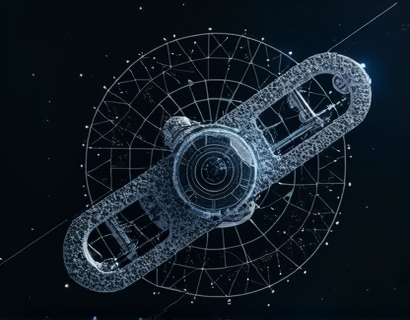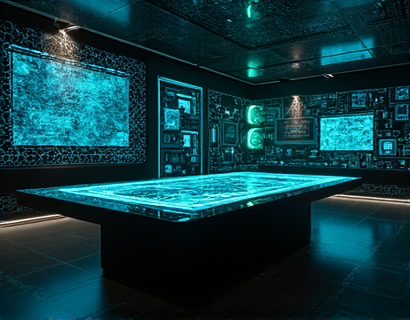Unlocking Ancient Wisdom: A Modern Guide to Historical Insights and Cultural Heritage
In an era where the pace of life often overshadows the richness of our past, there is a profound need to reconnect with the ancient wisdom and cultural heritage that have shaped our world. This guide aims to bridge the gap between historical insights and modern understanding, offering a comprehensive exploration of the timeless teachings and profound knowledge embedded in our shared history. Whether you are a history enthusiast, a cultural explorer, or simply someone seeking to deepen your appreciation of the past, this guide will provide valuable insights and perspectives that resonate with contemporary life.
The journey into ancient wisdom begins with an acknowledgment of the vast and diverse civilizations that have contributed to the tapestry of human culture. From the monumental architecture of the Egyptians to the philosophical musings of the Greeks, each civilization has left an indelible mark on our modern world. This guide will delve into the key aspects of these civilizations, highlighting their achievements, beliefs, and the lessons they offer us today.
Understanding Ancient Civilizations
The ancient Egyptians, for instance, were masters of engineering and astronomy. Their ability to construct the pyramids, precise in their alignment with celestial bodies, showcases a deep understanding of mathematics and the natural world. The hieroglyphs they left behind provide a window into their religious beliefs, social structures, and daily life. These insights not only enrich our knowledge of history but also offer lessons in perseverance, precision, and the importance of recording and preserving knowledge.
Similarly, the Indus Valley Civilization, known for its advanced urban planning and water management systems, provides a model of sustainability and community living. The sophisticated drainage and irrigation systems they developed thousands of years ago are still relevant today, offering valuable lessons in environmental stewardship and urban design. By studying these ancient practices, we can gain insights into how to address modern challenges such as climate change and urbanization.
Philosophical and Spiritual Teachings
Beyond the tangible achievements, ancient cultures also offer profound philosophical and spiritual insights. The Stoics of ancient Greece and Rome, for example, taught the importance of virtue, self-control, and living in accordance with nature. These principles remain relevant in today's fast-paced world, where stress and disconnection are common. By embracing Stoic practices, individuals can find greater inner peace and resilience.
The Buddhist tradition, originating in ancient India, provides a path to enlightenment through mindfulness, compassion, and the understanding of impermanence. These teachings encourage a deeper connection with oneself and others, promoting a more harmonious and compassionate society. In an age marked by conflict and division, the timeless wisdom of Buddhism offers a path to healing and unity.
Art and Architecture
The artistic and architectural achievements of ancient civilizations are not only testaments to human creativity but also serve as a reflection of their values and beliefs. The Parthenon in Athens, with its perfect proportions and intricate sculptures, embodies the Greek ideals of beauty, harmony, and democracy. Visiting such sites or studying their designs can inspire modern architects and artists, reminding us of the enduring power of beauty and function.
Similarly, the intricate carvings and sculptures of the Maya civilization, found in sites like Chichen Itza, reveal a deep connection to nature and the cosmos. These artworks not only showcase the Maya's artistic prowess but also provide insights into their cosmology and religious practices. By appreciating these works, we can gain a deeper understanding of the cultural and spiritual dimensions of ancient societies.
Preserving Cultural Heritage
The preservation of cultural heritage is crucial for maintaining a connection to our past and ensuring that future generations can learn from and be inspired by it. This involves not only the physical conservation of artifacts and sites but also the documentation and dissemination of knowledge. Museums, archaeological sites, and digital platforms play a vital role in this process, making ancient wisdom accessible to a global audience.
Digital technology has revolutionized the way we access and interact with historical information. Virtual tours, 3D reconstructions, and online databases allow people from around the world to explore ancient sites and artifacts in unprecedented detail. These tools not only enhance educational experiences but also foster a greater appreciation for the diversity and richness of human history.
Applying Ancient Wisdom to Modern Life
The true value of ancient wisdom lies in its applicability to contemporary life. By examining the successes and failures of past civilizations, we can gain valuable insights into how to navigate current challenges. For instance, the collapse of the Mayan civilization, attributed to factors such as environmental degradation and social inequality, serves as a cautionary tale about the importance of sustainable practices and social cohesion.
Moreover, the emphasis on community and collective well-being in many ancient cultures can inform modern approaches to social and environmental issues. The concept of Ubuntu, a Southern African philosophy that translates to "I am because we are," underscores the interconnectedness of all beings and the importance of mutual support and respect. In a world increasingly divided by conflict and inequality, these principles offer a path toward healing and reconciliation.
Conclusion
Unlocking ancient wisdom is not merely an academic pursuit but a vital endeavor for personal growth and societal progress. By studying the achievements, beliefs, and teachings of past civilizations, we can gain a deeper understanding of ourselves and our place in the world. This guide has explored various aspects of ancient wisdom, from engineering and philosophy to art and social values, highlighting their relevance to modern life.
As we continue to face complex challenges, the insights gained from our ancestors can provide guidance and inspiration. By embracing the lessons of the past, we can build a more sustainable, harmonious, and enlightened future. Whether you are a history enthusiast, a cultural explorer, or simply someone seeking to enrich your life with meaningful knowledge, the ancient wisdom available to us today offers a wealth of opportunities for growth and discovery.










































